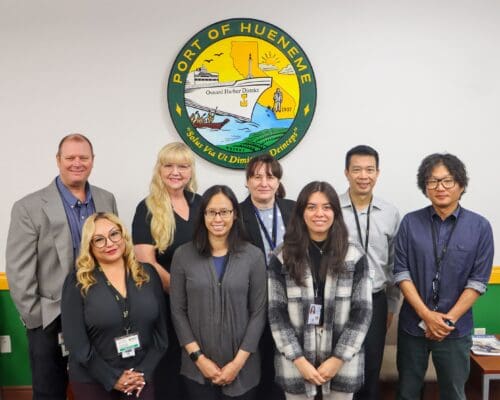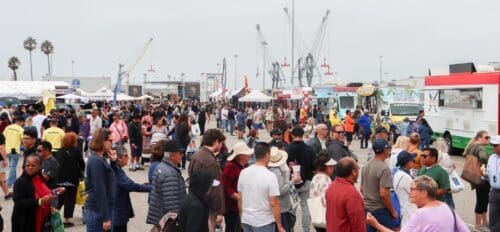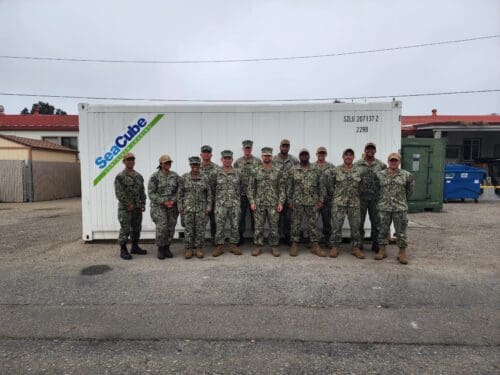Port of Hueneme: Foreign Trade Zone #205
A US Foreign Trade Zone (FTZ) is a secure area located at or near a US port of entry that is considered outside of US Customs Territory.
The FTZ program was created by Congress in 1934 to stimulate growth by deferring, reducing or eliminating custom duties.
The Port of Hueneme is grantee of U.S. Foreign Trade Zone #205. Established in 1994, it offers a wide range of manufacturing, processing and warehousing activities.
Port of Hueneme’s Foreign Trade Zone Information Sheet
Advantages of Using a Foreign Trade Zone
- Alternative Site Framework (ASF) makes available up to 2,000 acres for fast-track activation.
- Capable of accommodating storage and light assembly activities within its boundaries, under a duty-deferred status.
- Flexibility to accommodate all applicable cargo.
- CBP security requirements provide protection against theft.
- While in the zone, merchandise is not subject to US duty or excise tax, and is only paid when the merchandise is transferred from the zone for consumption.
- Certain tangible personal property may be exempt from state and local ad valorem taxes.
- Merchandise may remain in a zone indefinitely, whether or not subject to duty.
Role of US Customs and Border Protection (CBP)
- CBP is responsible for the transfer of merchandise into and out of the FTZ and for matters involving the collection of revenue. The Office of Regulations and Rulings at CBP Headquarters provides legal interpretations of the applicable statute,
- CBP Regulations and procedures.
- The Port Director of CBP, in whose port a zone is located, is charged with overseeing zone activity as the local representative of the FTZ Board. He or she controls the admission of merchandise into the zone, the handling and disposition of merchandise in the zone, and the removal of merchandise from the zone. In addition to the Foreign-Trade
- Zones Act, he or she enforces all laws normally enforced by CBP that are relevant to FTZs.
- Zones are supervised by FTZ Coordinators (i.e., CBP Officers, Import Specialists, Entry Specialists or Agricultural Specialists, etc.) through compliance reviews and visits; the security of the zone must meet certain requirements.
- More info from CBP site: www.cbp.gov/border-security/ports-entry/cargo-security/cargo-control/foreign-trade-zones/about
Establishing a Foreign Trade Zone (FTZ)
- In an expanding global marketplace, there is increased competition among nations for jobs, industry and capital.
- The FTZ program was designed to promote American competitiveness by encouraging companies to maintain and expand their operations in the United States.
- The FTZ program encourages US-based operations by removing certain disincentives associated with manufacturing in the US. The duty on a product manufactured abroad and imported into the US is assessed on the finished product rather than on its individual parts, materials, or components. The US-based manufacturer finds itself at a disadvantage compared with its foreign competitor when it must pay a higher rate on parts, materials, or components imported for use in a manufacturing process. The FTZ program corrects this imbalance by treating products made in the zone, for the purpose of tariff assessment, as if it were manufactured abroad. At the same time, this country benefits because the zone manufacturer uses US labor, services, and inputs.
- The Foreign Trade Zones Act of 1934 created a Board to review and approve applications to establish, operate, and maintain foreign-trade zones. The Board may approve any zone or subzone which it deems necessary to serve adequately “the public interest.”
- The Board also regulates the administration of FTZs and the rates charged by zone “grantees.”
- Customs and Border Protection (CBP) must approve activation of the zone before any merchandise is admitted under the FTZ Act.
What's New at the Port
Excellence in Financial Reporting Earns Port Prestigious Recognition for 14th Consecutive Year
Download Press Release Contact: Letitia Austin Public and Gov’t Relations Manager Laustin@Portofh.org [PORT HUENEME, CA] – Founded in 1906, The Government Finance Officers Association (GFOA) represents public finance…
Read MoreGOING BANANAS AT PORT OF HUENEME!
11th Annual BananaFest Celebrating a Diverse Working Port Themed “Charging Forward to a Zero Emission Future” Download Press Release Contact: Letitia Austin Public and Gov’t Relations Manager Laustin@Portofh.org …
Read MorePort of Hueneme Unites With SeaCube and Community Partners to Support Naval Base Ventura County’s USDA Fleet Reserve Program
New Refrigerated Container Secured to Help Military Families Access Vital Food Resources. Download Press Release Contact: Letitia Austin Public and Gov’t Relations Manager Laustin@Portofh.org [PORT HUENEME, CA] – In…
Read More

